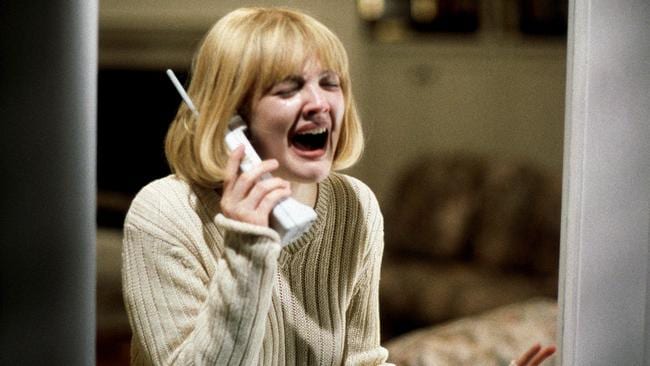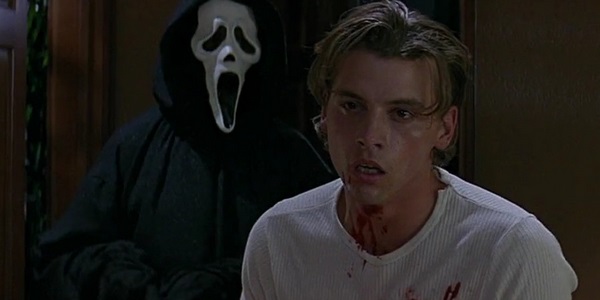There is a strain of nastiness to Wes Craven that I find a little unsettling. For the pivotal initial sequence in Scream, Drew Barrymore had told him about an instance of animal cruelty that had horrified and upset her, the memory of which Craven then used during the shoot to elicit a more convincing performance. That requires a lot of trust between director and actor, and in fairness, Craven acknowledges and is grateful for Barrymore's courage in making herself vulnerable in front of the camera. But having a director resort to such methods is still a bit unnerving.
The script was shopped around and could have gone in a bunch of ways, but with Craven attached it ends up as a genuinely scary movie – at least until the killer is unmasked and the film skips into absurdity. The irony of characters in a slasher film being aware of the conventions of slasher films is heavily present throughout, but the meta element becomes almost deafening in the scenes between Neve Campbell's 'final girl' Sidney and her boyfriend Billy (played by Skeet Ulrich as if he's channelling Johnny Depp). The latter speaks almost exclusively in film metaphors, so we really should have seen it coming.
The killer's motives are a joke, and used as just another comment on horror films (it's scarier if you don't know apparently). In fact the real motive is something Craven has been exploring throughout his career – the derangement of not being able to differentiate between reality and fiction. The money shot (horror films are in their way just as formulaic as porn) that encapsulates Scream is the TV falling on the killer's head and frying his brain. These kids are exactly what the censors of video nasties fear – that watching this stuff can turn you into a violent maniac. And the fact that it was accused of inspiring copycat murders perfectly rounds off the film's satirical project.


No comments:
Post a Comment